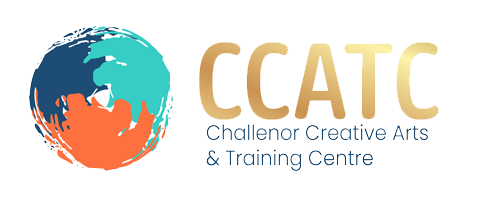Student Training Program
At Challenor, our goal is to provide a rich and engaging learning experience for all our students by fostering strong partnerships with parents and the wider community.
We serve students aged 4 to 18 who have moderate to severe, or severe to profound, disabilities, as well as wheelchairs and those with hearing impairments.
Our classes are thoughtfully structured to meet the diverse needs of our students. Groupings are based on cognitive and academic abilities, behavioral and management needs, as well as physical development requirements.
Our Programs
Autistic
This program supports children with autism in learning to function effectively at home, in school, and within the community. Individualized programs are delivered in a structured environment and incorporate visual schedules, sensory integration, assistive technology, and related services tailored to each child’s needs.
Pre-Academics 1 & 2
These levels feature specially designed activities to enhance the development of primary skills across all domains—intellectual, social/emotional, gross motor, and fine motor. An Individualized Education Plan (IEP) is developed for each student to guide instruction and monitor progress.
Academics
Instruction is delivered in both small group and individual settings using a variety of teaching strategies that address diverse learning styles. Each student follows an IEP developed to meet their unique needs. Subjects include:
- Mathematics
- Language Arts
- Science
- Art Therapy
- Music
- STEAM
- Related Services
Rehabilitation Therapy
Physiotherapy is an essential service for students with physical disabilities. This program also includes sensory stimulation, occupational therapy, and other related services. All interventions are guided by an individualized IEP tailored to the student’s developmental goals.
Adapted Physical Education
This program gives students with disabilities the opportunity to participate in sports and physical activities that are modified to meet their individual needs. The emphasis is placed on ability, not diagnosis, allowing each student to achieve their personal best.
Jaiden Robinson Day Habilitation Program
Designed for individuals 18 years and older who cannot transition into the Adult Training Facility, this program provides a safe and structured environment to develop and enhance functional skills for greater independence and quality of life.
Transition to Adult Training Facility
Transition Program– Instruction is delivered in small groups with individual needs being met, using a variety of teaching strategies. The curriculum used is Life Skills– requiring the ability to dress and groom properly, use appropriate table manners, preparing simple meals, make decisions about money, and use of public transportation. The three major areas addressed are daily living, personal/social, and occupational skills.
Students must have the physical and mental ability to transition into the Adult Training Facility and function/work independently. Students should be able to follow the TVET program, even if they are not capable of being certified. Students will be oriented to the program in a gradual process.
The students will follow four orientating modules –
- Module 1- Two or three Mornings per week (in the area of choice)
- Module 2– Each Morning
- Module3– All day
- Module 4 – Acceptance to ATF if applicable
Curriculum
The school utilizes and modifies a variety of curricula to meet the needs of our students:
- The Ministry of Education’s Early Childhood Curriculum is used in collaboration with the following. All classes except Rehabilitation Therapy.
- TEACCH (Treatment and Education of Autistic and related Communication Handicapped Children) Preschool Curriculum Guide.
- PreK-12 Life Skills Curriculum Guide (All classes)
- Casey Life Skills Guidebooks (Life Skills)
- Attainment Company Curricula (Life Skills)

